Indigenous Action Podcast Episode 14: Queering #MMIWG2ST
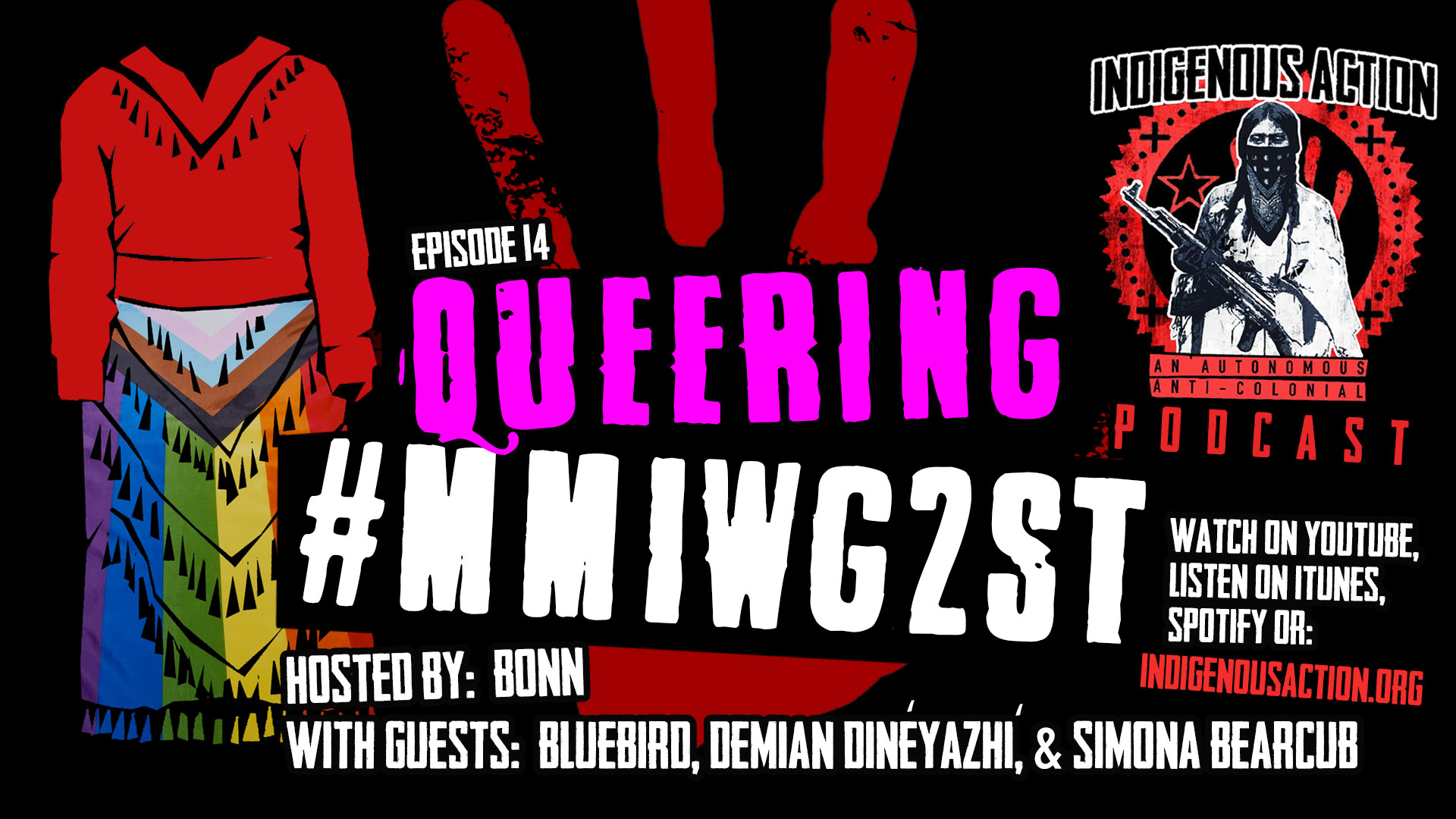
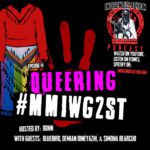
In this #mmiwg2st show, host Bonn talks with indigequeers, Simona Bearcub (@bearcubstrong), Blue (@ceneeteeniieihii), and Demian Dinéyazhi’ (@heterogeneoushomosexual) about queer erasure within the cis-heteronormative narratives around #MMIWG2ST and the co-optation of our movement by the non-profit industrial complex.
Content warning: Sexual & interpersonal violence.
[Transcripts below]
Connect with & support: Bonn, Simona, Blue and Demian’s work:
@bonnabella.xvx, Venmo: bonnabellaxvx
@bearcubstrong, Venmo: frontline-protectors @ceneeteeniieihii,
https://fundly.com/regenerationonthereservation
@heterogeneoushomosexual, Venmo: Demian-Dineyazhi
Watch on youtube: www.youtube.com/watch?v=5WGQZhAY32w
About the podcast: Indigenous Action is an autonomous anti-colonial broadcast with unapologetic and claws-out analysis towards total liberation. We feature radical frontline Indigenous voices and dig deep into critical issues impacting our communities. So take your seat by this fire and may the bridges we burn together, light our way.
Email us at IAInfo@protonmail.com.
Subscribe, like, share on iTunes, Spotify, and Youtube.
Check us out on the channelzeronetwork.com.
TRANSCRIPTS:
These are rough/rush transcipts.
BONN: Okka hello everybody so happy to be on the mic today for our queering MMIWG2ST show so before we get started. We’re actually going to give y’all? um. Ah, update on what’s happening out there in the front lines so we got a submission from libres le lastre and they’re working on a campaign to free the political prisoners. Karla Magda and arli and they are unjustly detained right now in Mexico City for during the eviction of the cuba refugee squat so they were campaigning against femicide the femicide that happened and. you you know well really all across um the globe but particularly in what’s happening. Um, you know in so-called Mexico so that leads pretty well into our conversation today about MMIWG2ST. So the government there is repressing and silencing silencing social workers and activists who are fighting against femicide and working really closely with families. You can follow what they’re up to and give. That support to them on their Instagram and their Instagram handle is at Libres Las and then a 3 so that’s L I B R E S L A S 3 okay, so like we said and. Today’s show topic is going to be on MMIWG2ST and that stands for missing and murdered Indigenous women girls to spirit and trans folks. So every Indigenous person that I’ve ever met has been impacted. By this movement and in in conversations around critical analysis of what’s going on in this movement. There is a hyper focus and of Cis women. Um. And this movement and there have been attempts made to include our queer relatives hence you know the addition of the 2spirit and trans abbreviations in the hashtag and of course that was an attempt to raise awareness.
BONN: And include us queers in the in the movement. But as we’ve seen the cisnormativity still dominates the narratives around the issue and so with me today we have Demian Simona and Bluee to talk about. This issue as well as you know, give some experiences and some analysis about why it is that cis heteronormativity and cis hetero patriarchal violence influences the erasure of queers. In this movement. So if you all want to give a brief introduction as well as provide your pronouns then we can go ahead and get started in our conversation.
03:37.75
BLUE: [Greeting in Native language] hello I wanted to greet myself in my native tongue. My name is Blueebird and I am Northern Arapaho um I’m a 2spirited individual and my pronouns I mean I don’t really have a preference so she he they are all fine.
04:10.44
SIMONA BEARCUB: I and hello I’m Simona Bearcub um, my people are the Nakota Dakota and Mono, Red Bottom Clan and my pronouns are she her they them.
04:27.24
DEMIAN: Ya’at’eeh a my name is Demian Dineyazzie I am a 30 mid late 30 s nonbinary queer person. Um hair is ah. I guess just above my nipple. Um I’m wearing a black shirt I have dark brown hair wearing a backwards baseball cap I have on some red earrings that were made by an Indigenous artist up in Canada I’m sitting in the hotel room currently coming from to you from. Na be hoing, um more commonly referred to the specific area of Brooklyn New York um I am from the Dine tribe with some Zuni ancestry and my clans are nastage. Tabbaha and Torta Cheatney and I live in Portland Oregon which is the ancestral homelands to various Indigenous tribes but was also like most Indigenous homelands you know, very rich trading grounds between various Indigenous tribes and.
05:38.89
BONN: And of course my name is Bonn and my pronouns are they them I’m going to follow Demian’s lead and give y’all a verbal description of what I look like and where I am so. Well I’m a Cocopa and German so I identify as native and white and I’m sitting in my office right now there’s some plants behind me as well as a bookshelf with some of my favorite manga. And I have long black wavy hair and of course my Cocopa bangs and that’s to protect us from the sun are little foreheads from getting burned I have several tattoos on my arms I have my septum pierce and there is a black. Nosering in it. Um am my pronouns are they them and yeah, so actually Bluee and Simona why don’t you all? um, give a verbal description of What’s happened on video there for folks who may have different seeing abilities.
06:55.28
Simona BearCub
And I just want to acknowledge that that was amazing. Thank you I’m going to definitely include that more often in anything I Do Thank you for that behind me? Well, there’s a lot of paintings my favorite the drum The little one’s drum with the bear print on it. Um. Afro-Indigenous Curly hair dentillium. Big big auntie energy earrings and necklace sitting on a couch.
07:30.82
BLUE
I am currently in transit back to the wonder of a reservation where I reside with my tribe and also the Eastern Shoshone relatives I’m currently on my homelands in Colorado and so that feels really good. Like anchor into my womb face and have this conversation and yeah I’m here in a black and white bandana top. It’s like my second time we’re in it but feeling good about it and this wearing this. Sacred beautiful necklace made out of seeds from the Amazon and it was gifted to me by a good relative who I pray with and I’m wearing some very beautiful like abalone circle star. You know, like dark and light blue and white earrings that my sibling had got for me for my birthday with some dentillion on the bottom and I’m rocking that like six months after morning haircut you know. It was up to like my ears and it’s grown about a good six inches in the last six months so I got also got some plants with me. Yes.
08:55.67
Bonn
Mm yeah I got to have those more than human relatives with us. Well awesome I just feel like I am in a queer heaven today where I got to be with these amazing people and talk about an issue that I really really care about. and we all really really care about um so to begin I guess I wanted to just provide you know a brief background in history into the conversation around MMIWG2ST because it’s an issue that I think has garnered a lot. Attention in recent years but people really need to know that you know rape and murder have always been used as mechanisms of control by colonizers settlers and now unfortunately you know are assimilated. Kin or I don’t even maybe we can get into that later but essentially we were you know folks were violently forced into submission by european contact. And that has really led to the diminishment of our autonomy and the sovereignty of our lands and so you know this is something that we’ve been talking about in our kitchens and our communities and with our relatives for a long long time. And as we started to mobilize around the issue on a larger scale in in those grassroots efforts to combat this horrifying violence the movement you know like I said in the last several decades. Has garnered more and more attention and because of that you know the nonprofit industrial complex has saw an opportunity to co-opt our grassroots efforts and and movements and kind of monetize this violence that we experience. And then of course there are other governmental entities that have coerced. You know people who started out on those grassroots efforts into their control to maintain control of our autonomy. And so within that specifically and during this conversation. We really want to focus on how queers experience erasure within the movement and how rape culture perpetuates our struggles and really what that co-optation.
11:40.42
Bonn
Of our movement by the NPIC which is the nonprofit industrial complex has done to the movement and our communities and our relatives. Um I think before we begin it would be helpful to maybe define some basic terms. So Um I think that maybe one that people hear and maybe kind of have an idea about but um I think hearing you know from us what we think Cisnormativity is would be really Helpful. So are there Anybody who would want to define that for our listeners.
12:27.29
Bonn
And even in the context of the struggle that we’re talking about today.
12:33.62
Demian they_them
Um I can take a ah crack at it. Um, so the term cis ah, is, cis gendered um is a term that. Refers to people who identify with the colonial gender that they were assigned at birth so assist female and Cis male. You know they you know were assigned male or female at birth and throughout their entire lives. They’ve chosen to. Remain identified as such um within that you know I think there’s a larger breakdown of how cis sexuality like functions that oftentimes doesn’t get talked about and at least you know outside of Indigenous communities. Trans non-binary communities queer communities as well is how gender is a colonial construct and you know science as well. You know plays into that especially when it comes to gender assignment and so that’s kind of how I like to you know, kind of think about it. Um, that’s how I like to also be become critical of it. Um, cisnormativity. Ah then applies to the ways that normative culture um prefers cisgendered individuals. Um, and so like the term you know heteronormativity which applies to you know heterosexual communities who have a preference as well. In mainstream western society cisgendered individuals as we see you know have a stronger preference. Um, there is a larger wealth of access and privileges that are afforded to cisgendered individuals. Um, oftentimes you know they um are still working underneath the the constructs and oppression of hetero patriarchy. Um. And so you know it’s obviously a very complex issue but it becomes violent and ah harmful when we’re yeah when when. Non-binary trans 2spirit individuals. Are you know facing? um, harassment death violence. Um, and presently you know, ah overwhelming and disgusting amount of colonial legislation.
15:22.60
Demian they_them
Against our bodies and livelihood. Um, but that’s you know I think you know with taking all that into consideration. Um, it entirely has ties to the issue at hand. Um, you know within the larger colonial. Construct as well. Some of the first people who were assaulted violated and murdered were our what would presently be known as you know trans nonbinary individuals by early colonizers and yeah, so if anyone wants to add on top of that feel free.
16:05.90
Bonn
I think that’s a pretty good definition to start and I think in answering you know some of the prompts that we have today we can further elaborate. Um, and then I think within that. And and giving a basic definition of what rape culture is is inherently tied to Cisnormativity and um, you know the patriarchy so rape culture is basically um, you know, just very briefly. The dominant society’s normalization of violence in particular against you know women in in queer folks and um, it basically. Um, and you know rape people who perpetuate rape culture essentially assign on to that. Um, that narrative that people are available. Um for entitlement. And um, it’s because of cisnormativity rape culture says that it’s we’re we’re like socialized to um, you know, not. Be. We’re like totally desensitized towards the violences that we’re talking about today. Um, and I think there is a very specific way in which that influences being a queer person and that normalization of of violence. Well um, and so I think you know again in our throughout our conversation I think it’ll become clear as to what we’re talking about especially later on when I give um some of the submissions for the callouts that we received for the podcast. Today and then um, another thing that we could just briefly define is co-optation. So what does what does that mean.
18:34.78
BLUE
Um, when an organization organization or a group takes on like the work that’s being done and says that they’re doing the work but like.
18:52.13
BLUE
Essentially is like capitalizing off of it and exploiting the ah grassroot vision of the work or at least like that’s how I see it.
19:02.57
Bonn
Yeah, and I think that lends in really nicely to the next thing. Um, just to give a ah quick brief definition of the nonprofit industrial complex.
19:21.80
Bonn
But that’s a really I don’t know how that could really be fully defined. But if anyone wants to try. It might be helpful just for folks to have that foundation before we start getting really into our clause out analysis.
19:44.17
BLUE
Yeah I would say it’s pretty similar to what I just communicated but like on a more global scale or like a huger scale where these organizations are. Basically like funneling in all of this money to support this thing and so people think that like this work is being done Meanwhile they are in a way supporting the thing that they say they’re not like or that they’re like working against. In a shorty explanation.
20:21.46
Bonn
Yeah, um, yes, please.
20:21.89
Simona BearCub
At to it I Kind of yeah as ah, the theft and censoring of our knowledge of our wisdom of our history and use for their own personal gain agenda.
20:34.99
Bonn
Yeah, another thing it does is it totally Strips. You know our movements from the autonomy of being tied to any colonial entity right? because nonprofits by and large get their funding from. Government through grants and even if they are private grants. They’re still tied to someone else’s agenda and so it kind of has this you know this effect on grassroots movements that takes away what it is that we’re doing on the ground and kind of almost legalizes it in a way and we know that the legal system is was created and. Uphold colonial mechanisms of oppression and violence against you know, particularly black and Indigenous folks. Um, so with that I’m super excited to get into. Conversation I hope that kind of orientation with some of those words based on feedback from podcast listeners like helps to kind of follow along our conversations. So thank you to those who provided that feedback that. Would be helpful to kind of give some of those definitions from our perspective as opposed to you know, whatever comes up on urban dictionary or Google or what have you and so I think maybe a good place to start for folks is kind of like. You know why we’re even here in the first place. Um I think all of us in some way has probably experienced. Um what it feels like to just live in a cis normative society. But then also. What that what happens when you know our movements our Indigenous struggles then perpetuate that erasure of a queer identity and like we said before the general movement. Um, which is typically just um, you know considered the m I w movement so missing and murdered Indigenous women movement. Um, you know they’ve made some small and subtle gestures to include us.
23:18.65
Bonn
But I’m wondering in Y’all’s experience. How has how have queers experience erasure and what what has that looked like.
23:37.40
BLUE
For me and something that like I’ve experienced personally by leaders in my community who yeah are actively leading. You know the and MMIW movement Base. We and use only statistics and experiences based on the woman’s identity while Queer and Trans and 2spirit relatives are not being like monitored included or thought about at all and then in the cases where some of our relatives are being mis gendered. When they’re trying to be located Also when they’re like finding justice for them and it doesn’t like tell the full narrative of what’s happening through the queer lens.
24:30.18
Bonn
And that ties in really well with you know what happens when our our movements are co-opted by the nonprofit industrial complex because it it really is dehumanizing um to everybody who, um. You know is part of those statistics but then it’s even more so when you know a person who is of um, a non-binary identity just gets shoved into one of those categories of being a man or a woman. And so we can also thank the NPIC for that.
25:08.40
Simona BearCub
What I’ve experienced in some of those spaces is when I you know I call out some of that behavior Some of the problematic things being said and it’s like oh you’re queer and it’s an immediate sexualization because I’m presenting and it’s an immediate like it’s a turn on it’s just. You have to battle that too.
25:33.69
Demian they_them
Um, yeah, 1 way that um I’ve I mean I think another space that’s um, important to talk about is social media. Um, and its influence on. And w and Indigenous communities and Indigenous identities. Um, you know because I have for the last few years facilitated a group called rise which stands for radical, Indigenous survivance and empowerment and we have an Instagram um, at RISEIndigenous and so you know oftentimes we’ll focus on Indigenous queer trans non-binary and two- spirit communities. We also had like a very large like Indigenous feminist and matriarical sort of um. Support system as well. But you know once we started to embrace more of embrace amplify and empower. You know, Indigenous queer trends non binary and 2spirit communities then we started to like get more opposition. Um. From other Indigenous tribes and it’s usually Indigenous Cis heterosexual men. Um, who will chime in and say this is y’all are crazy like you know like Indigenous gender um transgender identities and. Non-binary or gendervarianing identities did not exist prior to colonization like there’s no actual proof of that like what are you talking about? That’s you know that that didn’t exist and so it completely just disregards The fact that you know there are many Indigenous tribes that have various gender systems. And sexual identities that are even like for for the Dine people because um, ah you know I can speak on behalf of the Dine people. You know it’s written like into our creation stories. Um, and so um, the ways that gender has been Constructed. Um. Is Ancestral. You know it. It. It has been going on that way for centuries prior to colonization. Um, so that’s one way that you know our identities are being erased through social media. But you know there was a time back. Ah, few years ago. Um, when I wouldn’t say that we were the only Indigenous um ah subversive Indigenous like space that existed on social media but it was interesting to see the ways that some of these.
28:09.95
Bonn
This.
28:18.98
Demian they_them
Larger Indigenous accounts that are you know presently? um taken up a lot of space the ways that initially they were not inclusive of Indigenous queer trends or non-binary people. Um, it wasn’t until a lot of the people were being called out. And that you know a lot of this support started to to take place and started to happen. Um, so you see some like inclusion happening out there. But I also like question you know the the overall. Um, investment that these spaces have with Indigenous queer trans nonbinary communities. Um I think for a lot of people’s like it’s very trending it’s very trendy and so in order for them to survive as a space in order for them to maintain the power that they have through social capital. It becomes their best in their best interests to take on a lot of the issues that are happening within our communities. But again this is where something like co-optation and appropriation also comes into play. Um, because through that they’re also inherently. Um, co-opting and appropriating a lot of our issues in order to give themselves um in order to enhance our social capital in order to move them up the ladder but ah, again, a lot of these spaces are not run by Indigenous queer trends or nonbinary individuals. Um, a lot of these spaces are not run by queer individuals. Um, so I think that’s you know that’s something that is in in the present space that we live in through having to deal with like simulated um, alternative realities that exist within like colonial apps. And um, social media spaces. Ah, that’s another. That’s another place that um you know that’s another place where the battlefield or the battleground is like um, confusing. Because you see a lot of these things being posted create an awareness about like 2 spirited peoples. Um, but it’s it’s still questionable to a certain degree. But.
30:54.67
Bonn
Yeah, um, I’m glad you brought up the social media element because that is primarily the place in which um, this particular struggle has any platform. And last year I remember a bunch of you know Kin and relative had posted something um on may fifth to highlight and raise awareness about MMIWG2ST and they were all censored. I don’t know if anyone else remembers that happening. Yeah I see heads nodding um and that’s a really you know I think pertinent and relevant point to bring up. Um because not only you know since. Struggle is already. You know dominated by um, particularly like ciscentric narratives it further creates you know conflict for conflict and. Um, erasure for queers because if cis people can’t even get the platform and you know the the traction for a movement then where you know where does that really. Leave us and in the conversations and and in in some ways I think there’s such a huge desensitization of the experience of being ah like a queer person that. It’s just even more. Um, you know it’s even more violent to censor our our movements and through you know these? um these platforms are just basically colonial perpetu. Ah, colonialism perpetuating itself right? And so I think that with that being said, um, you know one thing that I think would be good to talk about too. How specifically cisnormativity and rape culture influence. The experience of being queer and at risk for being um, murdered or going missing. So I think.
33:45.51
Bonn
That that ties into you know, um, some of what we offered earlier in the conversation about what Cisnormativity and rape culture are but I’m curious. To help listeners understand what the intersectionality of being both Indigenous and queer means for us and and you know both the struggle of just living our everyday lives. And then also being a queer person who um, you know walks about the the earth the planet um the lands knowing that we’re at such a higher risk. For experiencing these specific types of violences.
34:59.85
Demian they_them
Yeah I mean I could you know I think um. Especially with a lot of the legislation that is being posed. You know I start to think about being young growing up in a border town I grew up in Gallup New Mexico um you know ah sexuality in the 90 s was like. I don’t scary as fuck, especially we were in the middle of the AIDS epidemic um, you know? Ah I was fearful that even just like identifying as um, a queer person back then would just inherently, um. Expose me to this not through any even like sexual or human contact. Um, but that’s the way it felt you know it felt that even if if um, you identified as this you were you were just um. It was just assumed that you were dirty. You were defiled. Ah there was no respect whatsoever for queer people. Um, and it’s it still feels that way today. Um I was you know. Fortunately enough I had like you know queer community in Gallup I found you know like-minded individuals friends who you know I still haven’t talked to um, who are also queer who are also native. Um. You know we all for the most part escaped and fled gallop got out as quickly as we could, but not everyone survives that um and I think that’s where cisnormativity comes into play is you know our. Forms of like violence harassment ridicule belittling that we come into contact with on a daily basis is meant to um to create situations that question our survival. Um, whether or not we want to survive it leads to youth suicides it leads to high rates of self-harm. Um, so I you know I think a lot of this legislation is is actually meant to. To Carry on these colonial traditions but um to do so in a way where through our own self-colonization through our own self-hate that is like taught to us and indoctrinated into us that we actually become the ones who um carry on the Missions. Of the Empire. Um, and it’s It’s amazing that any of us survive. Ah, but that’s where this like hardcore resilience comes into play Anyway I Hope that’s that’s helpful to a certain degree and.
38:11.46
BLUE
And yeah, just to piggyback off of that a little bit and recognize like that. There’s so much shame? Um, yeah, like instilled in us and just like art sexuality in general apart from. Yeah, it being so like who you like but like the fact that like it’s a conversation at all just like previous decolonization. You know each relative played a role that supported themselves and their community regardless of their gender. And so when the missionaries came in and separated the families. They also separated us based on which body parts we had and so all the boys’ hair was cut the same and the girls had a slightly longer haircut like signifying the difference between us, you know the boys had to wear pants and blazers and the girls had to wear. Blouses and dresses and on top of all of that we’re actively being fetishized molested and silenced and so like these traumas are carried on into each of our communities and families that are affected by the boarding schools and so like yeah these are things that like we as queer people have to deal with. Like on a daily basis like from our families from like through our communities and just like all of the trauma that our people have experienced It’s like our like we’ve been become dominated by the white man ideology where like yeah the the wines. Gender lines and roles and stereotypes are like really strong and so when survivors tell our stories we’re met with like a bunch of really insensitive questions. Um, and it feels like our truths aren’t being heard or understood like. And held in the way that they need to be like yeah like like you said you know Indigenous people are fetish size in general and queer and trends and 2 spirited people are targeted because the society has hyper sexualized us through media and not just like social media but like porn sites and different like. You know gotten to see fetishization stories and movies and things. So yeah I just wanted to communicate that as well.
40:32.70
Simona BearCub
and and I do want to piggyback on that too like um, my spirit’s very masculine at times and I’m very much a ah confrontational person. So ah when i. As a survivor when I came forward with my story. 1 of the main things that I heard from some folk was we have a hard time believing you because you would have stabbed this person you would have done this you would have done that that they expected me to somehow not. Go to default freeze but to go to fight and since I didn’t do that that made my call out. You know, not legitimate to them so I struggle with that too like um. Really trying to be more feminine. It’s why more fem presenting to kind of counter how you know the other parts of me and ah sucks.
41:33.64
BLUE
And yeah, it really does and honestly like I’m I feel you in that because I’m like the opposite and like I was so like sexualized as a young person and I was like really femme presenting and after you know I mean. Yeah, not to get too deep into things I felt more comfortable presenting myself in like baggy clothing and like more like male presenting just to protect myself in a way and yeah I don’t know it. It definitely also like gets to me. Sometimes when like I do I want to like just dress up and like feel good but also like wondering like yeah I don’t know just like the constructs and like the things in the mind that like prevent us from being able to like fully express who we are as individuals apart from like these gender norms. Um, yeah, just.
42:29.71
Bonn
Yeah, absolutely I think that brings up early interesting point and you know I think in my navigation of what my gender is which is that I don’t have one I tried out. I Think every versioning Queer has probably gone through this but I tried the you know, androgynous like tomboy quote unquote um, presentation. And even that did not protect me from you know the catcalling the stairs the sexualization and you know the experience of living in a society where rape culture is the dominant mentality and so I think that um within. You know our conversations about that. It’s so important to bring up how um you know a lot of us a lot of us queers. Um, are fluid and how we want to present our spirit and present. Physically and that still is not um, a protection um towards the risk of you know experiencing? Um, what would lead us to go missing or be murdered. And so that’s something that we really need to deconstruct on a societal level is this gendering of presentation. You know clothing. Um our spirits even um and so I think that ties In. You know again with the concept of living in a Cis normative society where we might see um someone who um, you know looks feminine and then automatically assume it’s a woman. And that’s something that I think we really need to um, just abolish from our mentalities because of course um, the unfortunate reality is that for every you know we are all impacted by the biases. The colonial institutions of gender and and everything really and so um, you know being um, you know having that experience of continuing to be harassed and and targeted.
45:16.17
Bonn
Um, because of how I looked and that I presented you know more queer I guess if you will um, did not necessarily um, you know, lead to anything changing if anything it made. Um, you know it. Felt like I was even more like out there in the open and then I had this really beautiful experience of um, you know realizing that? Um, what? how what and how I appear actually has nothing to do with. My gender which is when I realized I didn’t have one in the first place and so that’s actually when I in my entire life and and currently so am you know presenting the most feminine and that I ever have in my life because that’s what I like. Um, and so you know regardless of what I look like we live in a rape culture and so it’s like there’s a target on us every time we step out of our homes and so why not just you know. Look however, the hell I want to um because I know that my my spirit um is is not you know, related to any kind of physical presentation that I could possibly. Manage to present in this world. Um, and so I think that um in some ways you know, um, kind of looking outside of um. You know are like looking outside of the boxes that gender has been put into and then seeing how you know now that I kind of do fit into that cis assumed women identity. Um, how as a. I actually make things really complicated. Um and creates and not conflict within me and my spirit but conflict within the perceptions of other people and it’s very confusing for folks. Um, because they don’t understand why a non-binary person would um, become even more feminine I guess than they ever had been before and so those are all things that lead to I think. Um, one you know potentially making choices. Um, that put them in situations where um, you know whether you know a young. Might be running away from their community. Um, or um, you know all these various like things that happen when we live in a world that doesn’t see us as valid people. Um, that dehumanizes us So Those are all definitely things that you know Cisnormativity and and rape culture has contributed to um I think the circumstances in which. A queer person would go missing or be murdered. Absolutely.
49:13.54
Bonn
And then I think another you know important element to this conversation too has a lot to do with the carceral system because um. You know in looking at the NPICs. Um, you know approach to this struggle. It really is um, it’s really clear that. Um, you know the people who are leading these nonprofits in in the struggle are really like kind of obsessed with laws and they really believe that um you know there are good laws and there are bad laws and those bad and outdated laws are the reasons. Why. Um, you know this struggle exists and there’s a complete erasure of the root of the violence which is the long legacy of colonial oppression of um. You You know, Black and Indigenous people and specifically Black and Indigenous queer people and so when we look at that co-optation of our movement by the NPIC There’s an even further erasure of queers and then a. Further maintenance of cisnormativity and I think that goes back to what we were talking about earlier about how the npi see is very data driven and I think it’s important to mention that. To me I think Data is essentially a colonial extraction of our experiences of being alive. Um, and I think within that um you know. We we have um this attempt at looking at how we can make things. Um how we can like live in a more liberated society. Free from the free from the idea of being murdered or going missing. But then we have all of these resources just like um you know, getting funneled into these.
52:04.40
Bonn
Nonprofits that then perpetuate exactly what we’ve been trying to fight against and so I think that um, it’s really important for people to understand that there is no law. Or policy that I think will ever address the root of colonial oppression and violence and so I’d love to um, hear what y’all? um, think about that and how like how you’ve seen. You know nonprofits and the NPIC actually kind of undermine um the work that we’ve done to address the MMIWG2ST struggle.
52:56.60
Simona BearCub
Well with what you said data I mean that’s that was just like the main thing there was no database and then also when we do sometimes add the intersectionality of being Indigenous to um, the issues that they’re you know, Addressing. It’s always. Remember that one something else I mean it’s like they never really have a ah place for us or at least that’s how I feel Um, when I was working in the academic Realm or Nonprofit Realms It was like we always seemed to go. You know, get pushed aside our issues where. On the back burner or if I bring up and um, missing or murdered Indigenous relatives. It would be um, well this person disappeared that person and they would always be non-Indigenous and they would um change the topic to something else. Besides you know the issue that I brought to the table.
54:05.20
BLUE
And yeah, I also feel like while they try to include us in the narrative by like adding the extra letters and numbers and things you know it’s very similar to like the LGBTQ to us and it’s. A little just insensitive because in a way they’re still like putting us in a separate group from the woman when we are still a part of that narrative in a way that’s like the feminine energy of babies or whatever and. Yeah, like also feeling like the nonprofits essentially become a huge part of the problem by ignoring the issues like the violence to the land. The drug and alcohol addiction the intergenerational trauma like these are things that they don’t want to talk about because they’re actively. Engaged in these things and they believe that playing into the colonial oppression and having the power to create their own laws and bills will somehow match Mend centuries of continued genocide and then they become the face and the voice of the struggle. While not actually experiencing that struggle for their selves and yeah, like you know this has been echoed a few times like for their own career furthering the oppression and the genocide of like all of the people. And just like wanting to get into office and like become a politician for you know their benefit. Maybe maybe not so much in like a selfish way because they think it is gonna be for the people and like whatever. But. I Think when you’re able to take a step back and understand and like look at the bigger picture like you wouldn’t I don’t know personally I would never want to like give into that because I know that it oppresses us more like. When we think that we’re in Power. We’re actually like giving our power away.
56:28.23
Demian they_them
Um, I also just feel like there’s no trust the nonprofit industrial complex. Um abolishes trust in individuals. Um, they don’t trust us to just give us money. You know, a lot of the organizing I mean I’m also an artist. Um I apply for grants I apply I apply for funding um oftentimes that I run into these really amazing opportunities and they’re tied or some of the requirements are you know. You have to have a nonprofit or have a sorry but what’s the other one a fiscal sponsor you know? Um, so again, it’s like if you really cared about the issues if you really cared about the work that I’m doing then just give me the fucking money. Like I doesn’t need to be a tax right off for like whoever your donor is or anything like just give us the money like I know what to do with it. It’ll go back. It’ll go right back into my community. Um, so having to deal with like all the bureaucratic. Hoops that are are at play um is just one added form of like exhaustion that takes time and energy away from like what we’re actually trying to do um. And that’s ah yeah, yeah, that’s just 1 other thing that I have a problem with a nonprofit industrial complex is like it. There’s no trust involved in it. Um, and that’s where I start to question like the legitimacy of their support and advocacy and.
58:21.52
Bonn
Yeah, absolutely I have an experience of um, working in nonprofits. Um, you know after I graduated from NAU which was really a survival tactic for me at the time because i. Aged out of the foster care system and just needed somewhere to go and so I did get my you know bachelor of arts degree and then went into the nonprofit sector where I worked as a community educator to prevent sexual and domestic violence. And part of that nonprofit was a um runaway and homeless Youth shelter and I would do groups over at the the youth shelter and actually really loved it. Especially as being someone who you know just came out of. Living in shelters and group home settings. Um, those kids are fucking resilient but and they’re amazing, but there was um, you know so the use shelter was um. Separated by Halls. You know the men’s hall and the girls hall and we had a Trans um woman individual who needed shelter and um. Because of the confines of the grants that they um had they were obliged to house the Trans woman in the men’s hall or the Boys Hall. Um, which is. Absolutely horrifying imagine running away from and being homeless you know because of you know being um what I would likely assume was in a violent familial situation. Seeking shelter and then being put in um, in a unsafe environment in that shelter So These are just some of the ways in which that social control is maintained and further. Um. You know, further perpetuates violence against Queer folks and so um I think you know going back to Demian said it’s just like just give us the money like we know what to do with it. We’ve been practicing these different systems of caring for each other. Since time immemorial we know what to do and so on some level there needs to be a reckoning with with that and with how the public um interfaces with. These nonprofits as extensions of you know the government and sometimes you know people. Um you know, private you know fiscal donors if you will um. Because even in those situations it seems unlikely that someone who has accumulated that much wealth to be able to give it to other people would fully and this isn’t like a a catch-all statement. But. My assumption. Um, and my experience is that Um, those folks don’t totally wouldn’t totally support some of the things I would do with that Money. Um truth be told. Um. And so that’s just really something I think that people need to be really mindful of and how you know the evolution of a lot of these you know are are grassroots movements towards liberation end up being co-opted and then just. Creating more violence in our lives. Um, yeah, gosh that’s.
01:02:52.91
Simona BearCub
I Have a question, how much of a role do you think religion plays in policymaking?
01:03:01.11
Bonn
Oh my gosh. Okay, so um I mean I think that and ah I would say a huge role I think um God Even just for example, like. I was so I for my survival job I work for the state of Arizona and recently um, you know this isn’t totally related to policy but in an indirect way. It is. Ah, we went on a work retreat and that retreat was held at a Mormon Church and so here I am going like wow I guess I really went over your head. You know the history of extreme amounts. Ah, violence from mormons towards Indigenous people that still is happening today through the foster care system I guess that went all the way over your head, especially which is like so ironic because you know my experience in working for this day is so careful about. Everything because of you know, auditing and this and that um, but there are several ways in which the state is very much um, you know not separated from religion and churches. Another example I can give right off the top of my head is that you know we fund child care centers to improve. Um, you know various things like access to like age-appropriate. Supplies and resources and in child care centers and one of the centers that we sponsor is the San Francisco theycee preschool and pre-k program where they pray where they learn about you know god and where they learn about. You know, um, not being a gay person and not committing suicide and you know all these like very overly religious themes to people who are 4 years old um and that’s that’s not an isolated occurrence um in my agency. with the with that San Francisco the ahccenter here. That’s true for um, you know other centers across the state too and so yeah, I really think that. The colonial legacy which is inherently tied to oppressive religions was absolutely played out in our um and you know laws and in law the people who are chosen to make those laws as well.
01:06:13.88
Demian they_them
And yeah, it’s it’s pretty gross and Gallup the I believe the one of the head people who works at you and Gallup got rid of the child care program at UNM. Which benefits you know a shitton of like Indigenous women in the region Indigenous families in the region. Um, and they just completely got rid of that funding but he has ties to you know the the Mormon Church um who are you know coming in. Throughout the entire southwest region ah trying to assume power over communities take over um before that it was you know primarily catholicism christianity that had you know a detrimental impact. On the region. So yeah, religion is right right up there. It’s the driving force of of colonization. You know it’s where the money came from. Um. Like you could think of the nonprofit industrial complex like 1 of the boats coming across the at the Atlantic um present present day. You know that’s that’s how money and missions and conquering happens in communities.
01:07:55.24
BLUE
And yeah, it’s pretty gross not to get like too deep into it but like my partner and I have been doing mutual aid work since before the pandemic on our rez and during. Beginning of the pandemic. Our tribal business council tried to sue us for the work that we were doing because we used the name Northern Arapaho Tribe to like let people know like this is who they were supporting and then whatever we talked through that. Whatever there was also a church called foundations for nations who’s a mission group. Who had been doing like first come first serve drives through pickup. Whatever the help and our business council decided to give them a piece of land on the rez to support their work and their mission to Essentially you know kill the native save the man and yeah, they just built their. They just finished building their church and they are also going to have after school programming where the schools on the rez are gonna send their kids there. For after school activities and what they’re calling programming. Um, yeah, it’s just like really weird like the whole child I understand from like the whole child care thing and also like people feel like oh well this is a safe place for our kids to go like our kids are hungry and this and that and the other and they feed them and they tend to them. But yeah, it’s just like they know what they’re doing which is like yeah, really gross. So.
01:09:30.79
Simona BearCub
And that’s the reason I ask that’s because that’s the reason why I believe that? um since of religion has a strong base in policy and pretty much everything I don’t think that you know there won’t be I agree with you. There won’t be a change. That direction.
01:09:52.60
Bonn
Um, yeah yeah I mean I remember god I mean I grew up. Um you know like I said in various forms of incarceration through the foster care system. And it was very religiously oriented and even um, you know the unfortunate you know reality for my mom was that she was indoctrinated into my mom who was Indigenous into christianity and so. I was raised like that and when I did have like my parents in my life and then subsequently through incarceration and I was so afraid to be who I was for a very very very long time. Because of those influences in my life I remember thinking that I was a very very bad bad person because of being you know? um. Trans and because I am bisexual to so even that I don’t think I was like totally liberated from that mindset until I don’t know maybe like eight years ago and I’m 29 um.
01:11:25.22
Simona BearCub
Um, well you you’ve heard of the Orphan train movement right? Ahha the indenture they were the like the last of the indentured, That’s what was in Foster care. Basically.
01:11:27.48
Bonn
So yeah, the Orphan train movement.
01:11:41.19
Simona BearCub
Yeah, so I’ve been over over 25 different foster homes and I mean I have experienced multiple religions and they all told me the same thing that who I am being 2 spirit being queer was wrong. So it was very hard trying to um exist just. Just exist in my humanness.
01:12:05.17
Bonn
Yeah, that’s super super relatable.
01:12:07.59
Simona BearCub
Well, it was started by that was a children’s aid society. It was a charity where they were shipping these children on these Orphan trains and settling them on these farms as ah, human trafficking is nothing’s changed so doing basically through foster care. But you know. Wow.
01:12:26.64
Bonn
Yeah, yeah, totally yeah, my story is um more so related to the border. You know the border that crossed my homelands because we’re situated between you know so-called. US and so-called Mexico and so through the use of you know immigration laws. Um, we were separated from each other um and actually she’s a missing woman. Um, and so yeah, um. There’s so many ways in which um, you know these colonial mechanisms of oppression have evolved themselves um into just kind of recycling that same genocidal violence into a way that is like currently easily digestible. By the mass majority of people. So yeah, the foster care system is like a huge huge factor I think in a lot of the conversation that we had today. Um, and you know I guess. With that being said like um I wonder like if we want to wrap up this conversation by offering some words to folks and listeners. About how we can you know address the erasure of queers and the movement I feel like that’s a huge huge huge task and it’s a really hard question to answer and so if there is just like 1 or 2 um, you know things that we could do. What would you say.
01:14:32.82
Demian they_them
Ah, combat the homophobia transphobia like within yourself. Um, how you internalize it I mean as a queer person as a nonbinary person like I also. Understand like ways that I perpetuated like my own self-hate and self-colonization. Um through indoctrination through um public school systems. What I was you know taught told through you know I I went through communion and. You know I was raised catholic um, and so I realized that you know early on like that was something that I um, internalized and was taught ah coming out of that has has taken years coming into like my non-binary identity. Like that didn’t come to me until I was into my thirty s you know for the most part like my early teens or my late teens like early 20 s you know I very much ran and was like ah empowered and came through like my sexuality and my comfort with it through like lesbian die culture dyke. Culture and so um, you know I always kind of like joke that I saw myself more as a dyke than as like a gay male when I was younger. Um, but I did what it wasn’t until like my thirty s within the last few years that I realized. Um, you know that I I had used my like a masculine um shall or armor as a way to survive as a mechanism to survive when I needed to you know when when. I was very privileged in that way to be able to take that On. Um, but I Also think that it came through like butch dyke culture my like comfort and awareness of that. Um, or even just like presenting that. I Still to this day kind of like anyway, whatever but blah Blah. So I think you know me coming into my identity and like me embracing like my um nonbinary identity which I think will hopefully just like take me to the next like um evolution of like myself. Um, you know I think I’m like in this like metamorphosis transitory stage of like figuring out what the fuck is next um, but a lot of that comes through like my own internalized shit and I’m like a queer non-binary person. You know I’m I’m not. You know, ah a assist gendered individual who is presuming all this shit on behalf of of that community you know of of those communities. Um, and so I think you know 1 1 way is that one one way that they can do that is by understanding and realizing where that comes from um, confronting like their own homophobia and like transphobia um, and then working. With their community to create safer spaces for us. Um, and sometimes that doesn’t come through inclusion sometimes that comes through you just giving us again money you’ve given us opportunities you’ve seen that there’s um, a group. That is already doing the work and channeling all your resources and energy into helping them. Um not taking that that labor on and trying to co-opt it or appropriate it. Um, but by you seeing. And honoring and respecting the work that is happening and choosing to you know, be ah a person that that ah I don’t know fights fights and does the. The work for justice. Yeah.
01:19:01.44
Bonn
Absolutely I think 1 thing I would say for folks is to just fucking believe us when we say that something is queer phobic it’s fucking queer phobic and you need to sit with. Whatever it is that you said whatever it is that you did and correct your fucking mentality because I’m so sick of pointing out these different phobias that people have towards I think. Specifically being non-binary for me. Um, and you just need to believe us when we say that something is violent towards us and something that you said or did is perpetuating rape culture. Something that you believe is misogynistic or sexist I can’t do this defensive patriarchal bullshit anymore. It’s that simple I think you just need to. Believe us.
01:20:33.50
Simona BearCub
Um, thing I would like to add is just quit adding gender to my actions to my fashion choices to who you think I am the way I should behave and just let me exist. You know, let us exist In. Um. All that we are so that I can give myself permission to find out who that is.
01:21:03.71
BLUE
Kahome I thank you all for sharing like what is so true and I just want to share a little bit about like my experience like pre getting onto this call and like reading the questions and like just feeling so triggered. A way like being a part of these conversations previous and like not really feeling seen or heard so I’m just like ah like you know, like how do I go about this and I’m really glad that I was able to like land in this safe space. And yeah I definitely feel like. That’s a big part of like what is going to be able to include us in conversations is giving us a safe place to tell our truths and also like listening to and. Trust. The relatives who come to you and tell you that something doesn’t feel right? like you were saying bon. And yeah I just believe that like our strength and our momentum comes from having these deeper conversations and like being able to unwind and like reweave with each other in. Like these spaces and also like in our own communities and families. Yeah, thank you so much for giving me the space to exist and.
01:22:32.77
Bonn
Yeah ditto. Um, that’s what I said at the beginning any of this conversation I was like this feels like a little mini virtual paradise because I really like I think where I’m situated. You know, physically and environmentally like I can’t I don’t think I could have said any of the things that I said today in this podcast was and people and you know in real life here and so-called Flagstaff and they. Understood what I was talking about. It was just super frustrating and I think you know ties in really well to the conversation of feeling like you know, erased as a queer Indigenous person. But anyway, thank you all. So so so much for you know making space in your very busy schedules to be here. I’m so glad that what I believe will you know this will probably likely be 1 of the all in queer centric. Um. You know resources that people will have for them iwgtwostday so this will air on may fifth which is the day that we recognize all of the people that we lost to um. What truly is you know a long legacy of colonial oppression and violence and so and with that again. thank you um and thank you for existing.
01:24:20.82
Demian they_them
Yeah, Thank you Thank you as well. Also even though like we just said all this shit and it was hard and it was difficult and it was um, disgusting and you know, um, disgusting in the sense that like. You know it’s it’s it’s this hard. It’s just a hard conversation to have and um I don’t like thinking of humanity this way I don’t like thinking of Indigenous communities and people who um, have been like devastated. By Colonialism in this way. But you know I I Hope that people also walk away from this um, wanting to like celebrate the fact that like our communities like add so much like joy and complexity and Beauty. And Harmony to the world. Um, so I hope that we can also like celebrate that because we are we just bring so much fire and light and and laughter to the room. Um, and so I. Want to remember that as well. Because even though we went really fucking deep like it would be really amazing to like um also be in like the physical space with one another and just have fun dance tell jokes whatever you know because that’s another part of like our identities that um. Creates so much power and.
01:25:57.14
Bonn
Thank you Yes from the artists of very many mediums and talents. Thank you for your beautiful words to wrap up this show. Yeah absolutely I think it’s so. So easy I Think for me to just really go there when I have the chance to because like I said I don’t really have the opportunity to do this a lot. Um, but thank you so much for you know the reminder that you know we are the land and all its. All its beauty and all its queerness and so let’s you know,? let’s just keep um you know in in in connection with that spirit and live our lives as beautifully as they are meant to be.
SHOUT OUTS, CALL OUTS: All right? So we have reached that part of the podcast where we do shoutouts and callouts from submissions by our listeners. So of course if you have anything to shout out and highlight in the community. Just the. Amazing things that are going on out there on the ground or if you have something that needs to be called out so that we can continue to keep you know abusers and enablers out of our community and keep our communities more safe. Please submit those announcements and you can email us at iainfo@protonmail.com. So let’s start out with our shoutouts for this podcast so there is a really really free market in corvallis oregon. And that’s a mutual aid effort where they focus on the holistic needs of the folks in the area with the idea that materials and material need should not be commodified so you can get anything there from clothing to food to electronics and. Really anything that you can think of because those items are moved through the market by members of the community who help them organize. And so if you want to check out what they’re doing what they’re up to you can look at their Instagram @rrfm_corvallis. Another shoutout that we got today was submitted by someone named Kennedy. Also provided us with a callout. So first we’re gonna give a shoutout to Tena Bear Don’t Walk. Kennedy says that she is an amazing person and that they’re in awe of how strong and beautiful. She is. She’s a natural leader. And even in the face of adversity. She continues in her badassery that shout out is absolutely appropriate for the strength that Tena showed us when she named and called out her rapist and Kennedy provided. Um, behalf of Tena, a callout and so that callout is to Adam Sings-In-Timber and Liz Hoover, as well as Nina Sanders. So, Liz Hoover is being called out as a pretendian rape apologist and an enabler. She’s a professor at UC Berkeley and environmental science policy and management with a particular focus in indigeneity. Then Nina is another rape apologist and enabler, who’s a curator writer and has been most recently affiliated with the University Of Chicago where she’s a visiting fellow. So Tena came out about her rapist who is, again, Adam Sings-In-Timber and then she also called out these 2 other people Nina and Liz for helping him hide his violence and abuse and then also giving him access to young, indigenous women. So there have been several young indigenous women who have bravely came out and then that they’ve been abused and harassed by him. So we just want to, again, thank Kennedy for sharing that on behalf of Tena and keeping the community safe from harm. If you want to look at that public post that Tena created to call out this abuse you can check out her post and her other work at on Instagram @crowegan I think that’s how you say it, crowegian. Another callout. Um. Came from Vandee Crane and they are saying that a non-native event organizer named Chiatanya, I believe, in Taos keeps inviting and giving a platform to a rapist who is using spiritual abuse to manipulate and coerce his victims. He’s a pedophile and the the girls have ranged from ages 13 to 16. His name is Keith Brown he’s also known as Red Eagle and in 2019 members of the Indigenous Youth Council met with Lakota elders because Red Eagle is from Pine Ridge and based upon their you know, recommendation and intervention, which I kind of wish was more info on, they made it very clear that he was not to be a representative of the Lakota nation or of native communities at all which was then communicated to this event organizer Chiatanya but Chiatanya still insists on inviting him to community events so he can be a liaison for Indigenous people with the Tribal Vision Organization which, again, gives him access to very young girls so keep those shout outs coming these ones are particularly relevant to the conversation that we had today. Need to do everything that we possibly can to end the cis hetero normative patriarchy that perpetuates the rape culture in which we live and normalizes this kind of behavior and then also you know sets up um people here you would think. Would be our accomplices in this struggle to actually enable that behavior by these native men which is just horrifying and so again, if you would like to submit some shout outs callouts please do so by emailing iainfo@protonmail.com.
END
www.indigenousaction.org/podcast
#queermmiwg2st #indigequeer #anticolonialism #anticapitalism #indigenousaction #mmiw #mmiwg2st

Feature Front
The family of Klee Benally thanks you for the donations!
Feature Front
No Thanks, No Giving! Indigenous Action Yearly Fundraiser (online)
anti-colonial
16th Annual No Thanks, No Giving!
-

 Commentary & Essays11 years ago
Commentary & Essays11 years agoAccomplices Not Allies: Abolishing the Ally Industrial Complex
-

 anti-colonial5 years ago
anti-colonial5 years agoVoting is Not Harm Reduction – An Indigenous Perspective
-

 Feature Front1 year ago
Feature Front1 year agoThe family of Klee Benally thanks you for the donations!
-

 anti-colonial5 years ago
anti-colonial5 years agoRethinking the Apocalypse: An Indigenous Anti-Futurist Manifesto
-

 #nonukes11 years ago
#nonukes11 years agoIndigenous Elders and Medicine Peoples Council Statement on Fukushima
-

 anti-colonial3 years ago
anti-colonial3 years agoUnknowable: Against an Indigenous Anarchist Theory – Zine
-

 #nonukes15 years ago
#nonukes15 years agoUranium Mining Begins Near Grand Canyon
-

 #policestate4 years ago
#policestate4 years ago16 Things You Can Do To Be Ungovernable. P.S. Fuck Biden
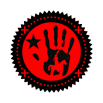
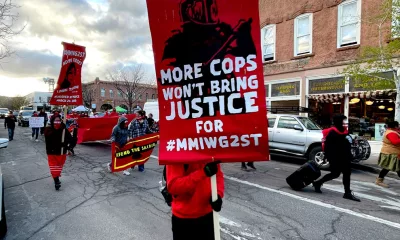

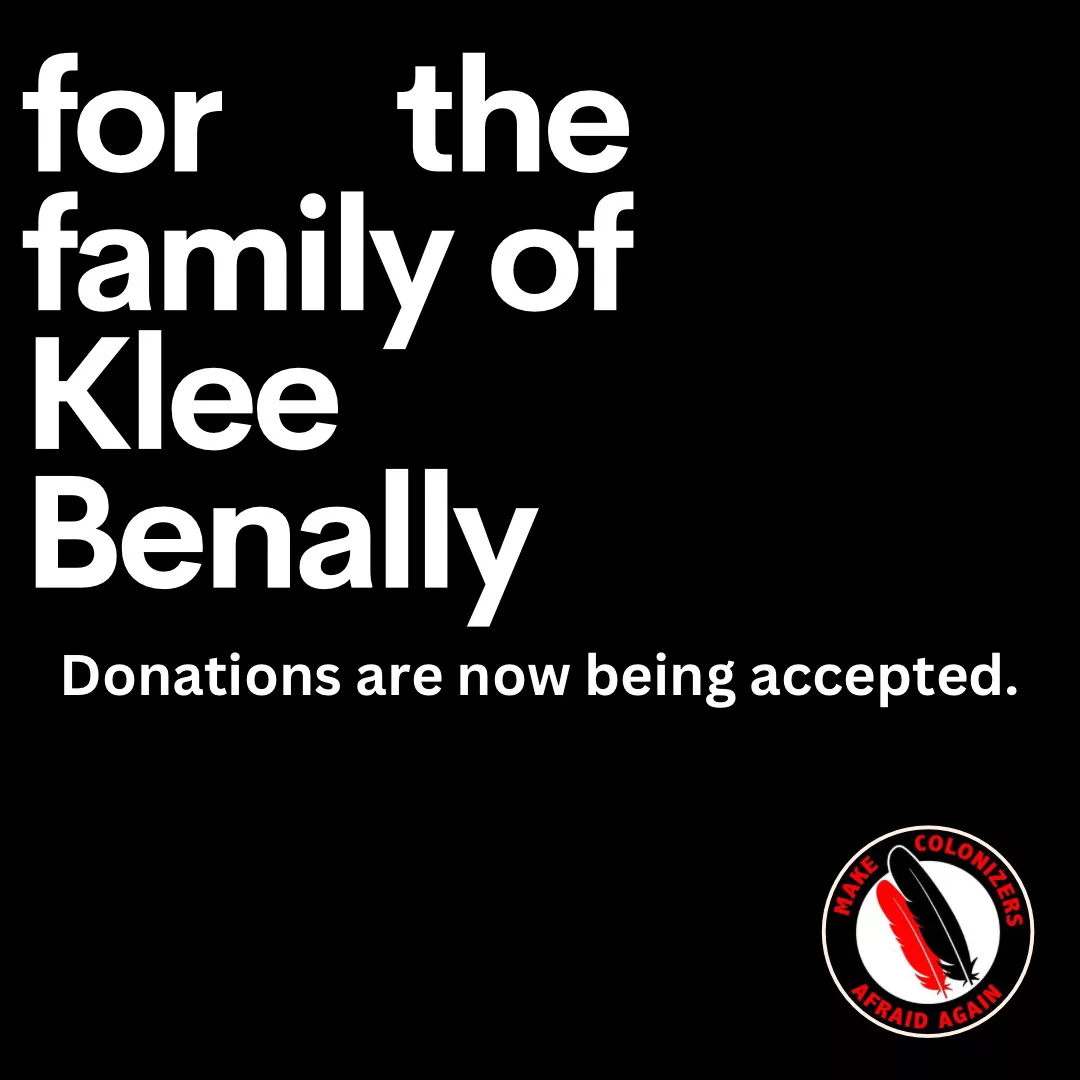
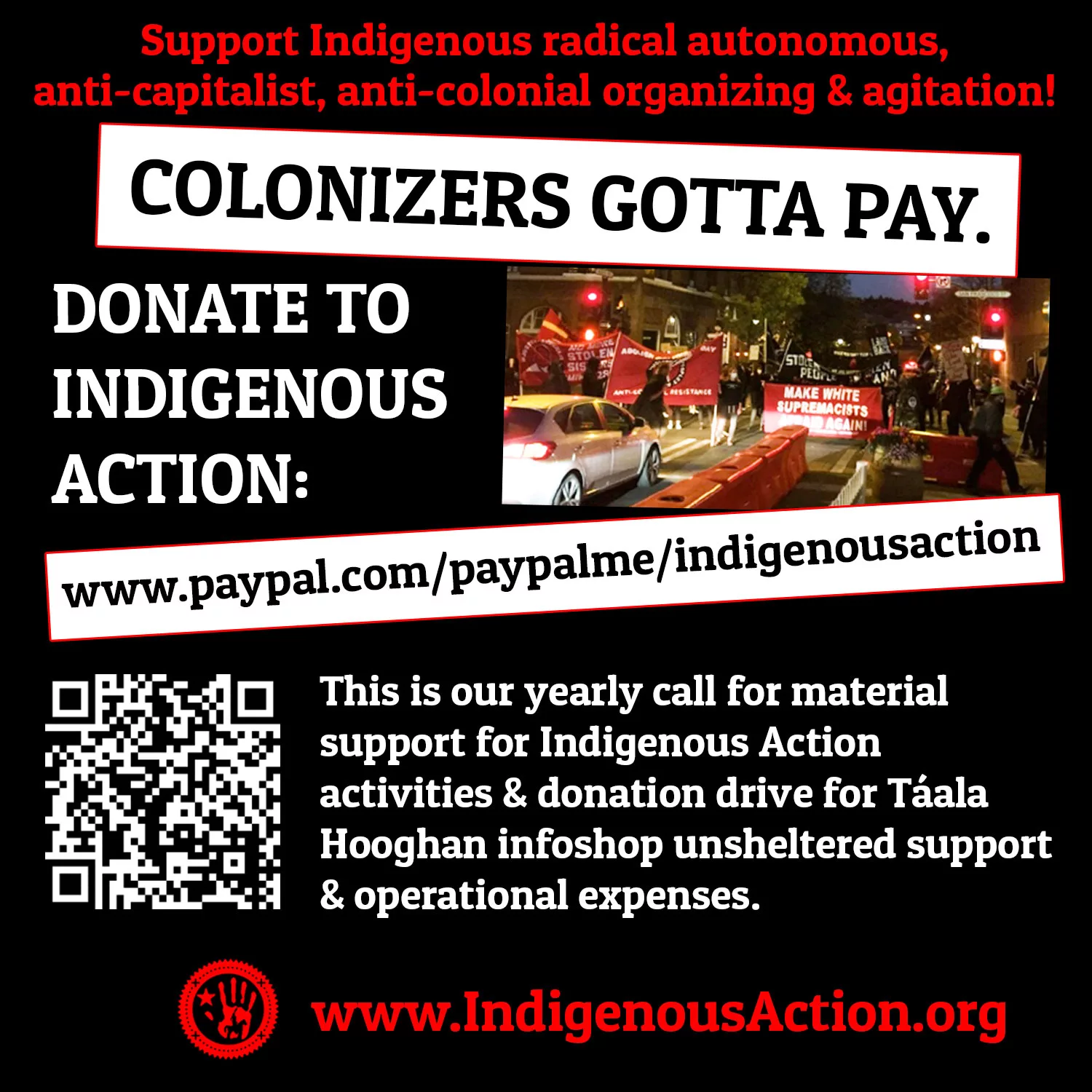
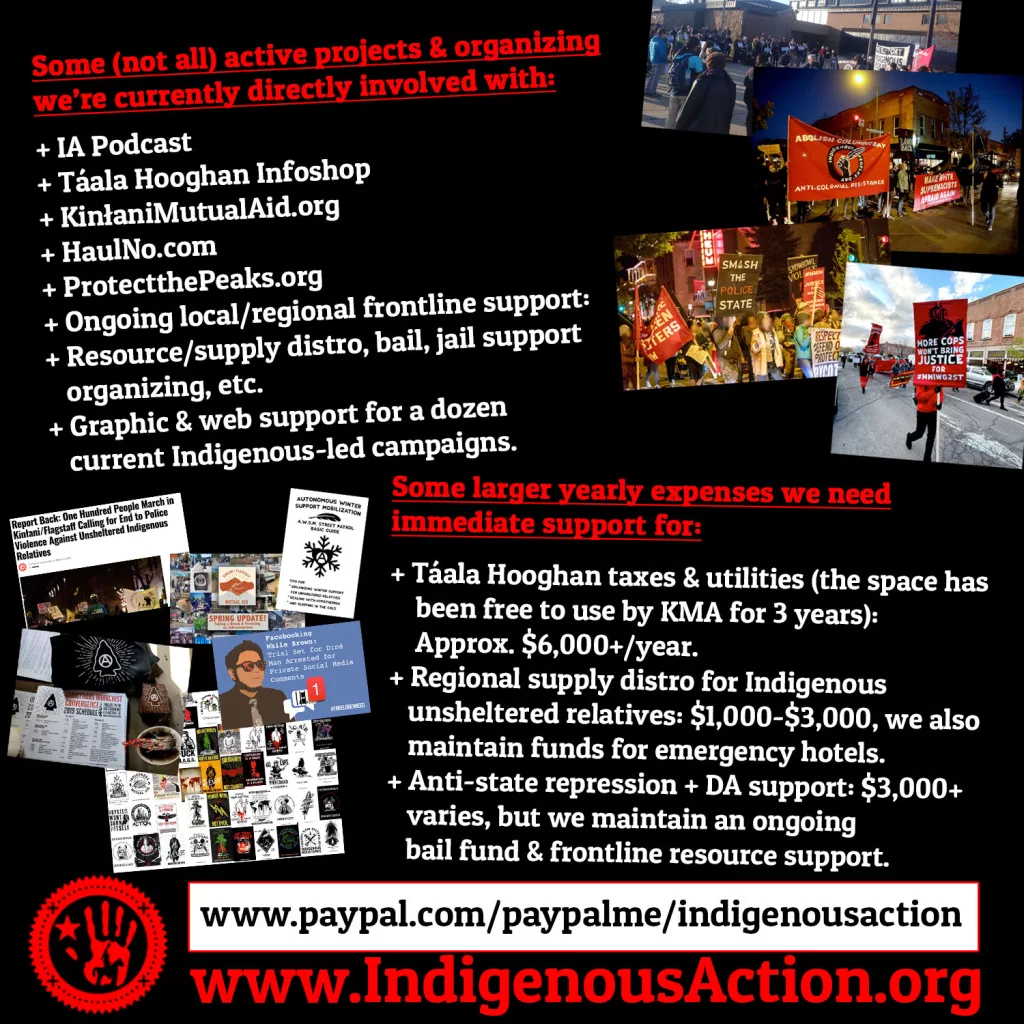
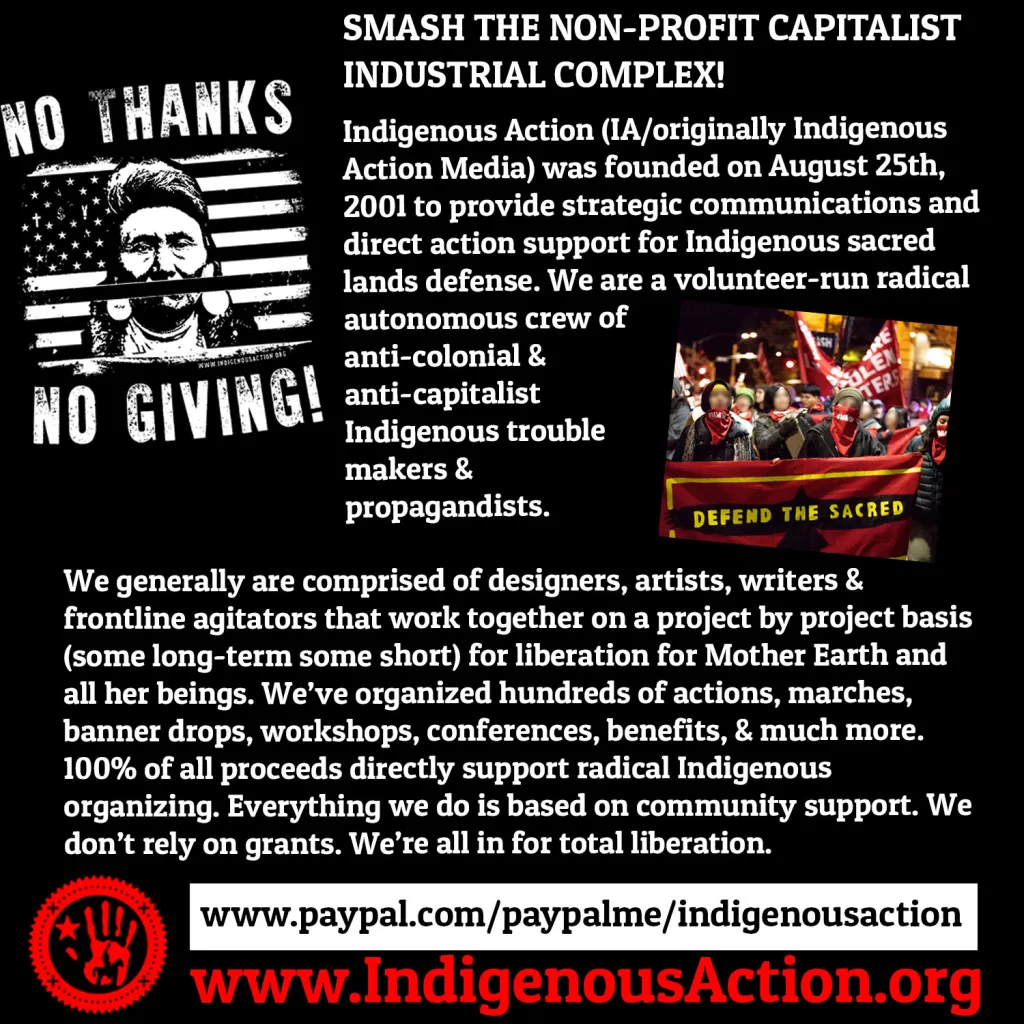
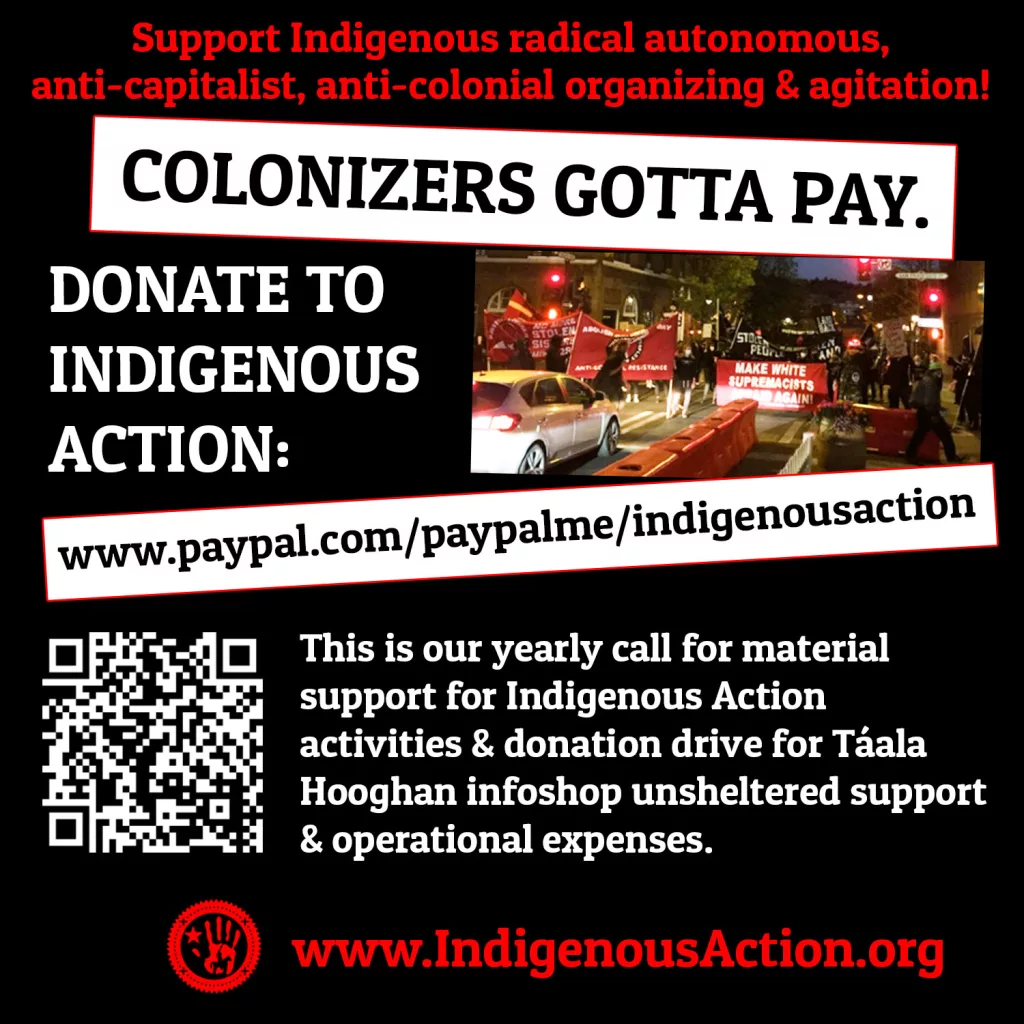
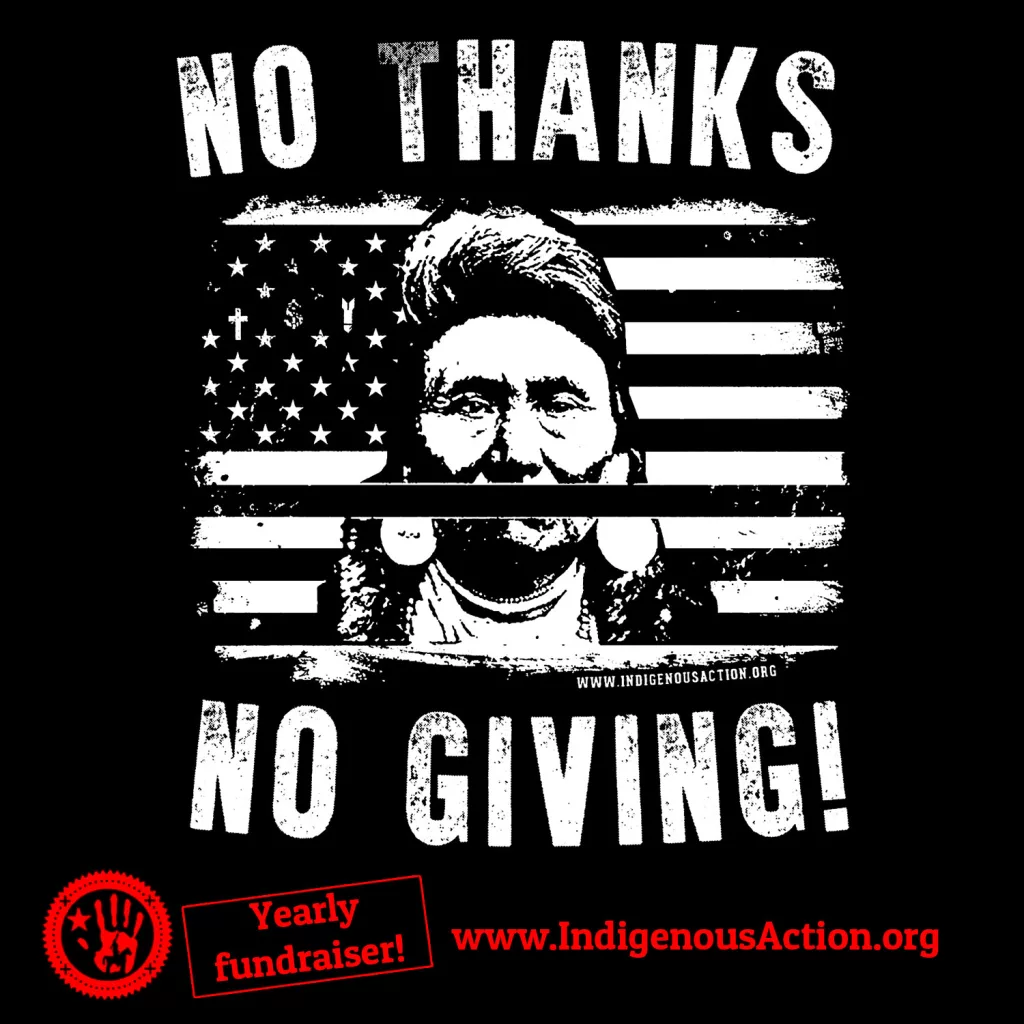
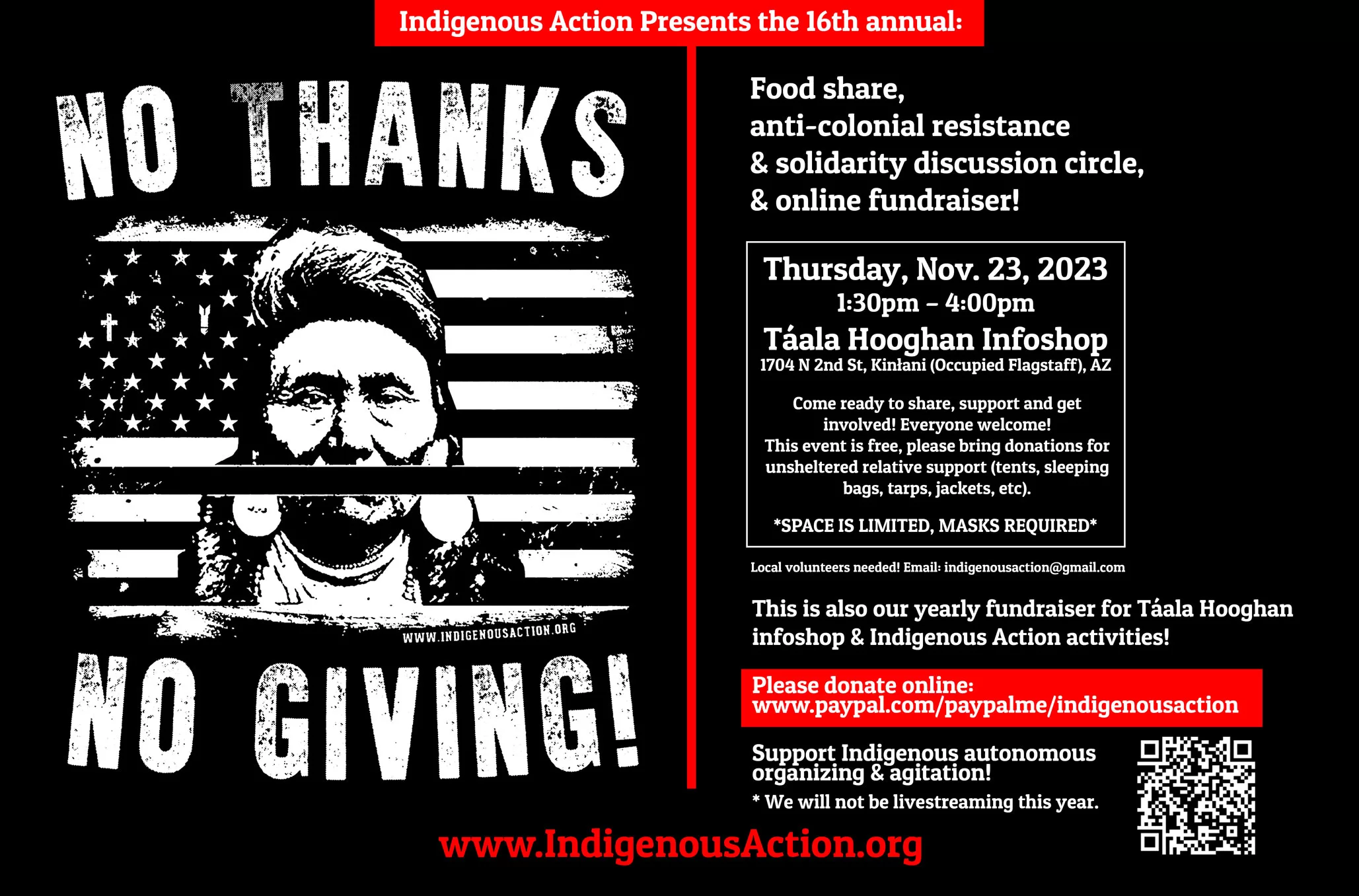

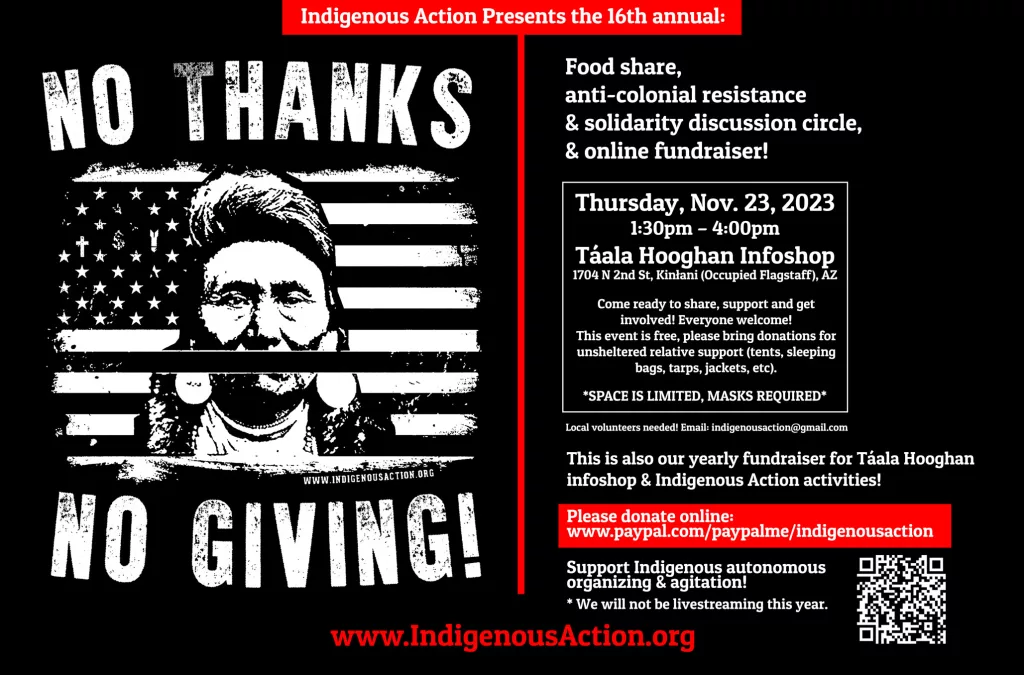
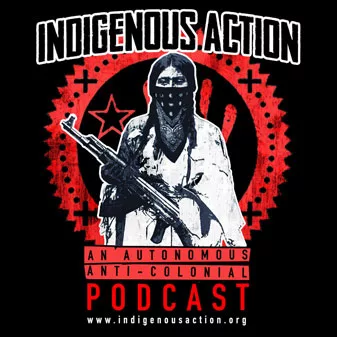
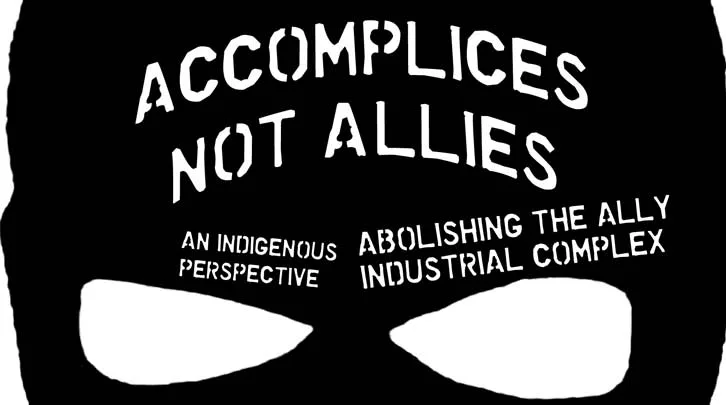
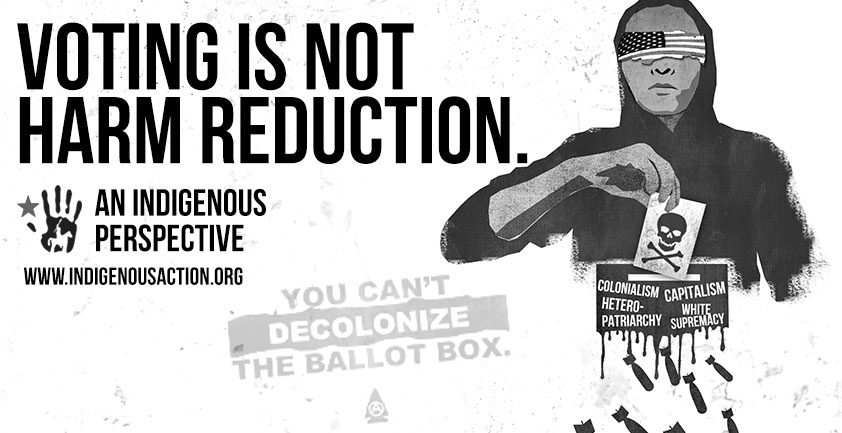
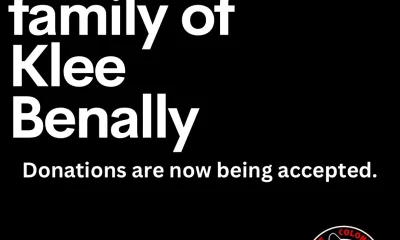



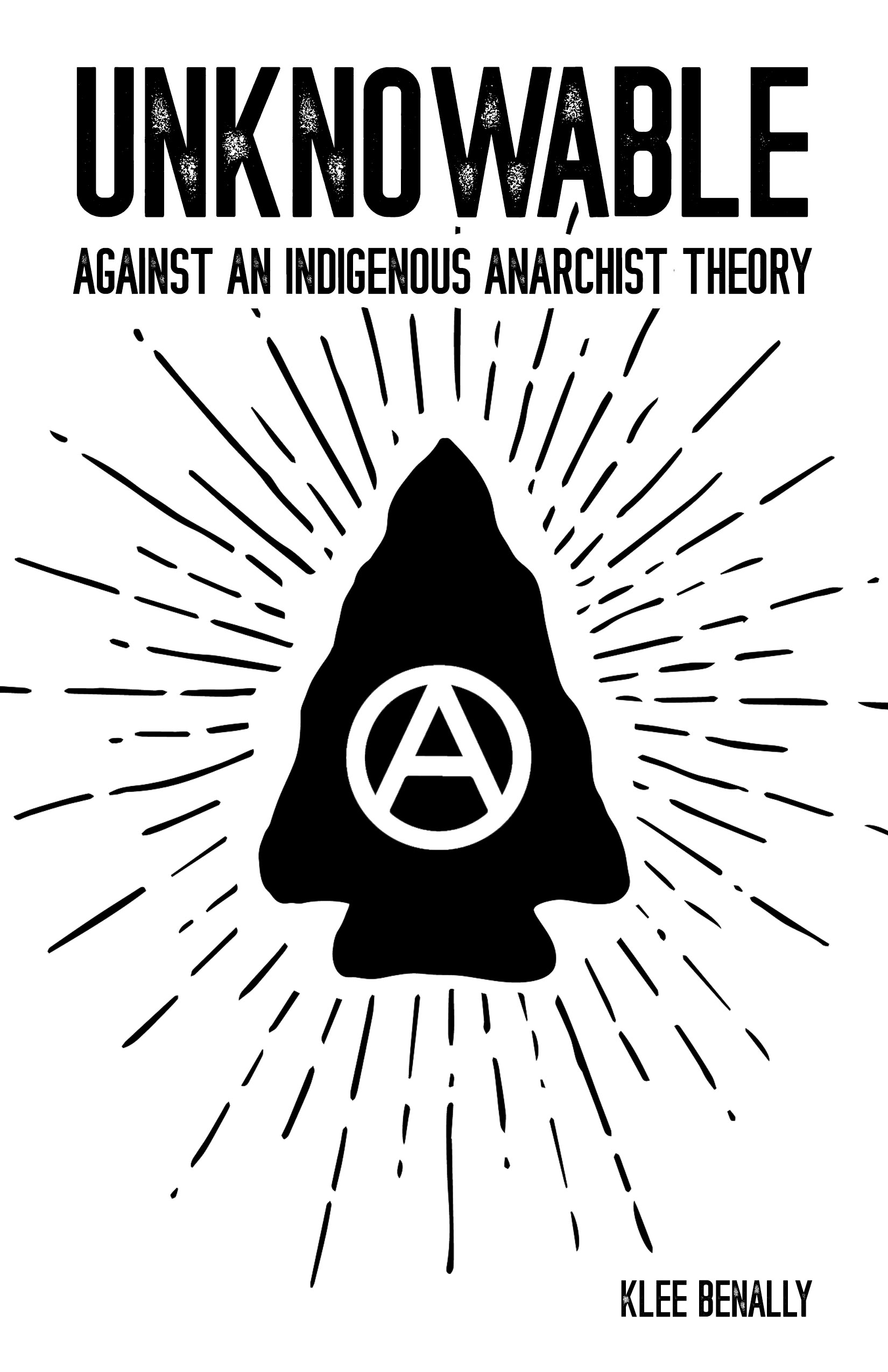
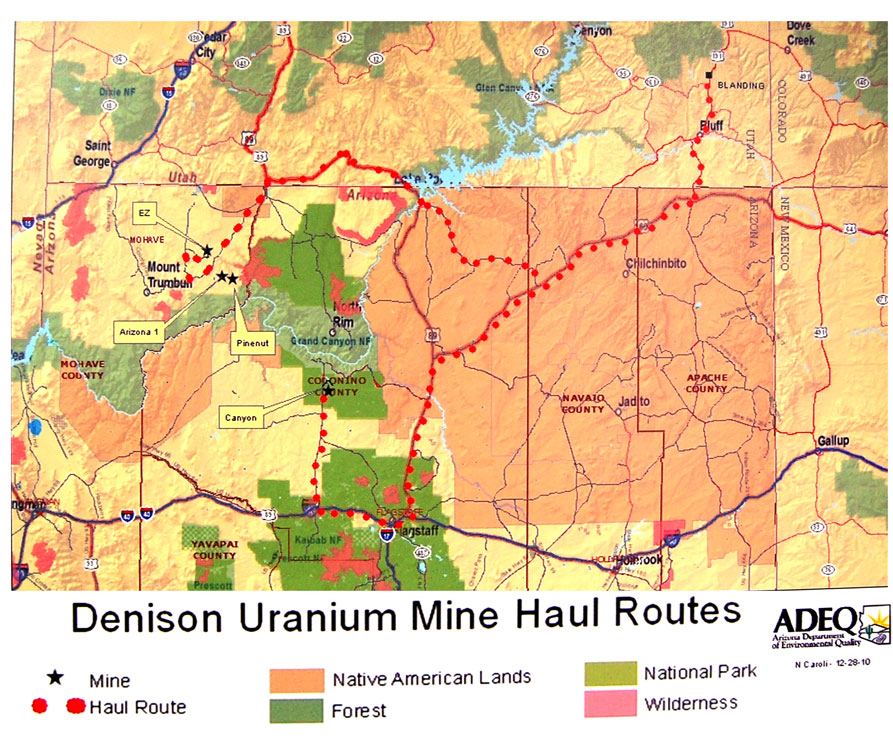
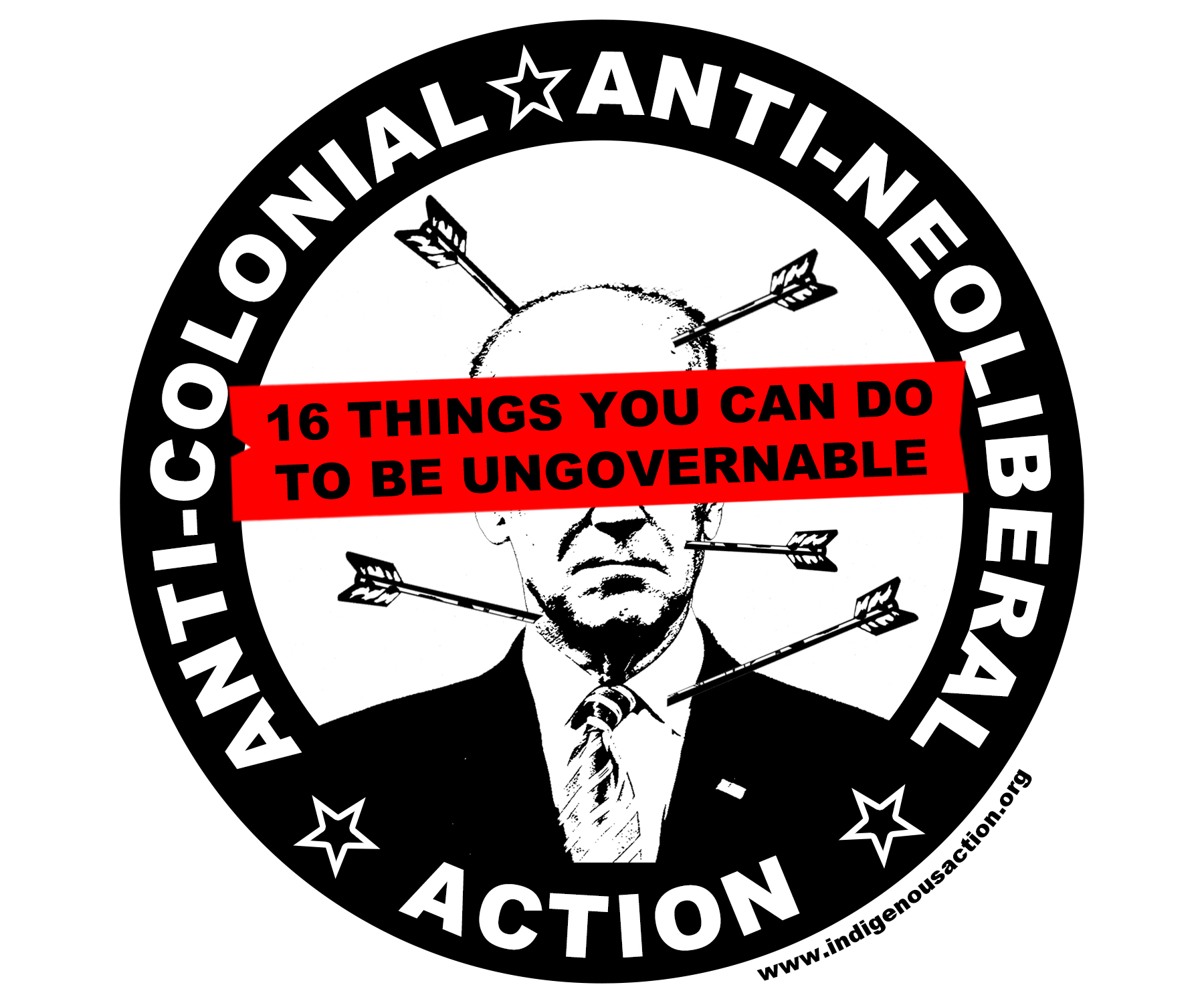
You must be logged in to post a comment Login